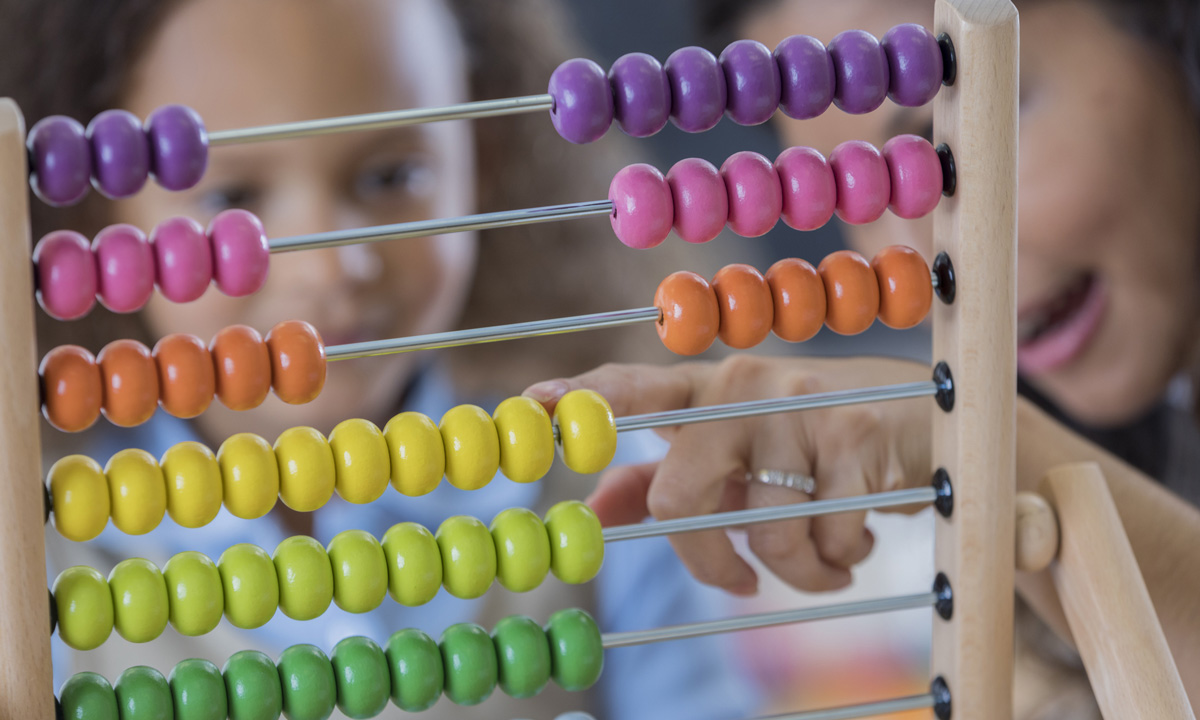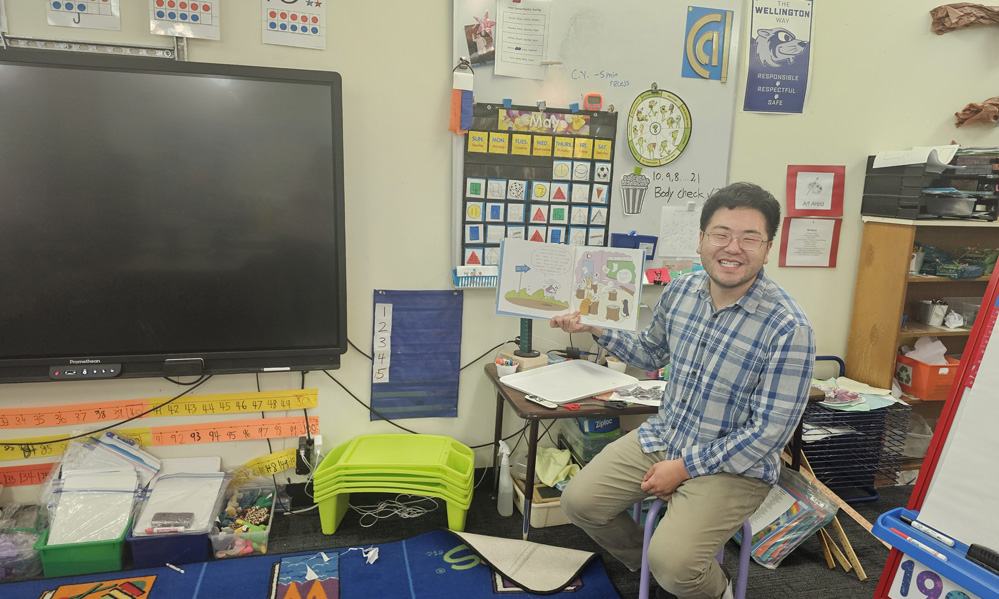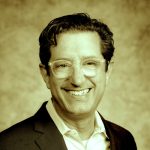Math Fellowship Rooted in Racial Justice Supports Early Educators
The Racial Justice in Early Math Teaching Fellowship is helping early educators make math accessible and engaging for young children.

Join our zero2eight Substack community for more discussion about the latest news in early care and education. Sign up now.
A child’s early experiences with math can make a big difference in how they navigate numbers and solve mathematical problems for the rest of their life, but many children aren’t developing the confidence and skills they need to feel successful.
Nearly half of first and second graders report being “moderately nervous” or “very, very nervous” about math, according to a 2019 Harvard Business Review article. This anxiety disproportionately affects girls and students of color. If bias in curriculum or instruction makes a child feel like they don’t belong, they might not realize their potential for solving mathematical problems and figuring out the world.
The Racial Justice in Early Math (RJEM) teaching fellowship aims to make math accessible and engaging for all children. The one-year program helps kindergarten teachers better understand the intersection between racial justice and early math.
The fellowship is part of the Racial Justice in Early Math project, which launched in 2019 as a partnership between Erikson Institute and the University Illinois Chicago (UIC) College of Education. RJEM was built upon a theoretical framework and practical applications developed by Jennifer McCray, associate research professor and director of the Early Math Collaborative at Erikson Institute and Danny Bernard Martin, professor of education and mathematics at UIC.
The RJEM team examines the ways racial bias seeps into the classroom, organizes dialogue around this issue and develops practices for educators. McCray said she often asks educators to reflect on their earliest math experiences. Did they feel proud of themselves? Were they excited to make connections between ideas? Or did they feel left out, concluding that they simply aren’t so-called “math people?”
“Teachers are math anxious,” McCray explained “Math has been used to sort people.” Labeling children as having or not having math aptitude sets them on a lifelong trajectory, and that pressure creates anxiety, she explained. But McCray and Martin assert that there’s no such thing as a “math person” or a “not-math person.” In a webinar from early 2024, Martin characterizes the question of “who is defined as ‘smart’ and why?” as an underexplored matter of who holds power in the classroom.
The RJEM Fellowship Is Changing How Early Educators Approach Math
Shae Rounds-Kelley — one of six 2023-24 RJEM fellows — teaches kindergarten at Hernwood Elementary in Randallstown, Maryland, where about three-quarters of residents are Black. She said this experience helped her identify that part of the issue for her students is a lack of racially and culturally relevant curriculum. Working alongside her cohort and mentors in the program, she developed ideas for redesigning her lessons and strategies to help her kindergarteners make meaningful connections to them.
Rounds-Kelly observed that pedagogical strategies should depend on context. “What works there might not work here,” she said. “The beauty of the fellowship came in moments when we realized we had to stop, calibrate and figure out how to be more culturally relevant and responsive.”
In addition to her classroom job, Rounds-Kelly is also an adjunct professor at Stevenson University, where she works with future educators. She said the lessons she’s learned from the fellowship are also shaping her work with the next generation of teachers.
Sung Yoon, who teaches kindergarten and first grade in Woodinville, Washington was also part of the 2023-24 cohort. He said the fellowship changed his approach to teaching. Yoon reported that when he told friends and colleagues about the fellowship, a common response was, “So you think math is racist?” He would clarify, “No, that’s not what this is about. It’s about how we teach math and dismantle the white supremacy that has been embedded since the dawn of time.”

Yoon doesn’t always spell out the racial dimension of his approach to teaching. “At our curriculum nights, I don’t explicitly say to parents that we are killing white supremacy in our math education. I do say it’s about thinking critically and coming up with our own ideas,” he explained.
Reflecting on his family’s Korean background, Yoon acknowledged that math is taught differently in the United States. “A lot of people in Korea talk about how American math is easy, but it’s not really easy… There are more story problems, a lot of critical thinking going on, rather than memorization,” he said.
Yoon said that parents of different ethnicities have expressed curiosity and sometimes concern about the way he teaches math. Numberless word problems, for example, which focus on concepts like more and less so that children take time to understand context before rushing into arithmetic, have raised eyebrows. “I tell them, ‘In this math workshop, we’re also learning critical thinking skills that are important in the 21st century.’”
A Math Mentorship Model Provides Ongoing Support for Early Educators
A core element of the fellowship is mentorship. The program convenes participants in Chicago and pairs each fellow with a mentor.
Yoon teamed up with Sisa Pon Renie, an educational coach with Erikson Institute. “We have very similar backgrounds,” he said, “And we bonded so much over that because finding an Asian American teacher is very difficult in the United States.”
For Rounds-Kelly, the experience of working with a mentor was rewarding and beneficial, but it also revealed a lot about the educational support missing at her school, which primarily serves children from low-income families. “I just love learning from Black women in education, so when I got to work with Donna Johnson, I was like, ‘I want to learn everything from you! Give me all of your knowledge!’” she said.
According to Rounds-Kelly, Johnson — the assistant director of school support services at Erikson Institute — expressed surprise that Rounds-Kelly didn’t get a stipend from her school to spend on supplies. “I was like, in what world does anyone get money to spend on their class?” she recalled. “My classroom doesn’t have heat! I can’t do all of these great things when my kids are wearing coats and hats.”
The fellowship and the mentorship has pushed Yoon to think more about representation.“When we think about assumptions about who is good at math, we don’t always see different races,” said Yoon. A lot of the fields considered mathematical are predominantly white, he added. “I love that things have been changing.”
Get stories like these delivered straight to your inbox. Sign up for The 74 Newsletter


;)
